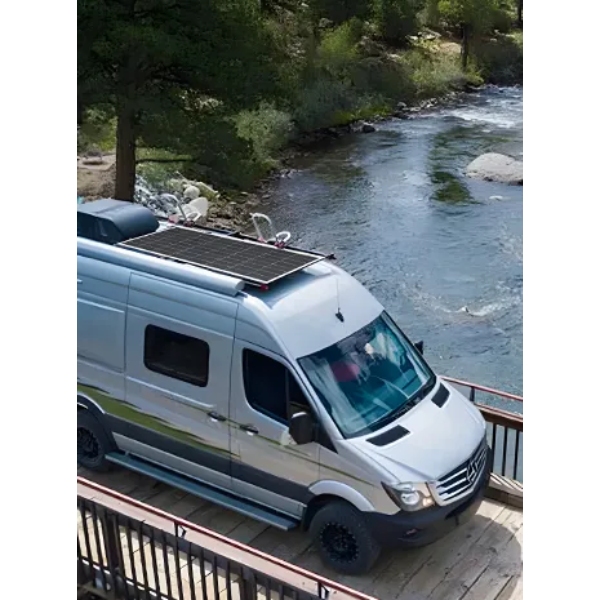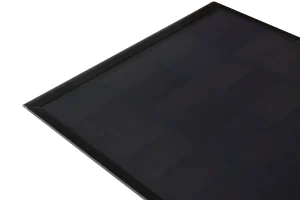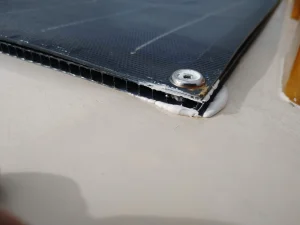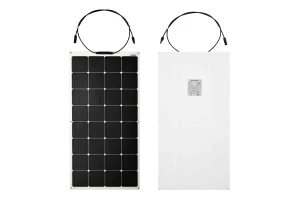For many RV travelers across the U.S. and Canada, solar panels are no longer a luxury—they’re a necessity. Whether you’re parked deep in a national forest or boondocking in Arizona’s deserts, solar panels offer a quiet, eco-friendly, and cost-effective power source that keeps your adventures going without relying on noisy generators or limited campground hookups.
According to the RV Industry Association, more than 11 million American households now own an RV, and a rising number of them are installing solar systems. Solar adoption is up by over 30% in off-grid RVs since 2020, as reported by Statista.
But which solar panels are right for your RV, and are they worth the investment?
What Are the Benefits of Installing Solar Panels on an RV?
Here’s why solar energy is revolutionizing RV life:
-
Cut long-term energy costs: Generate your own power for lights, fridges, water pumps, and mobile workstations.
-
Reduce noise: Unlike generators, solar panels operate silently—ideal for peaceful campsites or overnight stays.
-
Increase energy independence: With the right battery setup, you can stay off-grid for days or even weeks.
-
Be environmentally responsible: Solar power reduces your carbon footprint and dependence on fossil fuels.
And let’s not forget—solar systems can boost your RV’s resale value as more buyers look for energy-efficient models.
How Much Does It Cost to Install Solar Panels on an RV?
Average Cost Breakdown (USD):
| Component | Estimated Cost |
|---|---|
| Solar panels (200W–600W) | $300–$900 |
| Lithium battery (100Ah–200Ah) | $500–$1,500 |
| MPPT charge controller | $100–$300 |
| Pure sine wave inverter | $200–$500 |
| Wiring, brackets, labor | $300–$600 |
💡 Pro Tip: Bundled kits like the Hi-Power Portable Solar Panel Kit help save on install costs and are easier to upgrade or replace.
Want to know how much an RV solar panel setup typically costs? Read our 2025 RV Solar Cost Breakdown for a full overview.
Which Type of Solar Panel Is Best for My RV?
Choosing the right solar panel for your RV isn’t just about price—it’s about compatibility, weight, flexibility, and efficiency. Here’s a side-by-side comparison:
Rigid (Fixed Frame) Solar Panels
-
Pros: High efficiency, cost-effective, long-lasting
-
Cons: Bulky, not ideal for curved or fiberglass roofs
-
Best for: Permanent roof installations on large RVs or Class A motorhomes
Flexible Solar Panels (e.g., PA219 Series)
-
Pros: Lightweight, curve-conforming, aerodynamic
-
Cons: Slightly less efficient than rigid panels
-
Best for: Vans, Class B RVs, trailers with limited roof space
Portable/Foldable Solar Panels (e.g., Hi-Power Series)
-
Pros: Easy to deploy, can be angled for max sun exposure
-
Cons: Requires manual setup, storage space needed
-
Best for: Weekend campers, renters, backup power
What About Shadows and Hot Spot Risks on RV Solar Panels?
Shading is one of the biggest real-world problems for RV solar systems. Trees, roof-mounted antennas, or even AC units can block part of the panel, causing uneven heating. This leads to hot spots, which degrade cells and reduce efficiency.
How PA621 Solves This
The PA621 Lightweight Solar Panel from Sungold features:
-
Advanced bypass diode technology, which mitigates performance loss due to shading
-
Heat-dissipation insulation layer, preventing localized overheating
-
Highly efficient monocrystalline cells for reliable output even in partial shade
💬 If you’re parking under trees or constantly changing locations, this is the panel series you want.
What Are the Best RVs with Built-in Solar Panels?
Many newer RVs come solar-ready or even fully equipped. Here are top picks in North America:
| Brand | Model | Solar Feature |
|---|---|---|
| Airstream | Interstate 24X | 300W solar + lithium battery + 2,000W inverter |
| Winnebago | Revel | Factory 215W panel, MPPT controller, roof port |
| Thor Motor Coach | Sequence | GoPower solar system included |
| Coachmen | Beyond Lithium | 190W panel + 3,000W inverter + lithium battery |
🧭 Looking to retrofit? Explore RV solar panel kits compatible with most Class B and C vehicles
Frequently Asked Questions (FAQ)
1. Can I run an RV air conditioner on solar power?
Not easily. A/C units draw 1,500W–2,000W or more. You’d need a large battery bank and at least 800W+ of solar capacity.
2. What maintenance do RV solar panels need?
Minimal—just clean dust or leaves off the surface monthly, and check for loose wiring annually.
3. How long do solar panels last on an RV?
Most quality panels (like Sungold’s PA219 or PA621) last 20–25 years, with efficiency above 80% after 20 years.
4. Do I need a professional to install my RV solar setup?
If you’re using rigid panels or integrating with a lithium battery system, yes. For portable or plug-and-play kits, most DIYers can manage.
Final Thoughts: Is Solar Worth It for RV Life?
If freedom, sustainability, and silent energy are priorities in your RV lifestyle, then solar is not just worth it—it’s essential.
Whether you’re full-timing, weekend camping, or road-tripping through national parks, installing the right solar panel system brings peace of mind and power independence.
🔍 Quick Recap:
-
Use PA621 lightweight panels for hot climate and shading resistance
-
Try PA219 flexible panels for curved or small roof surfaces
-
Go with Hi-Power portable kits for easy, modular setups
Explore our full selection of RV solar panels and see why thousands of North American travelers trust Sungold for their off-grid adventures.








